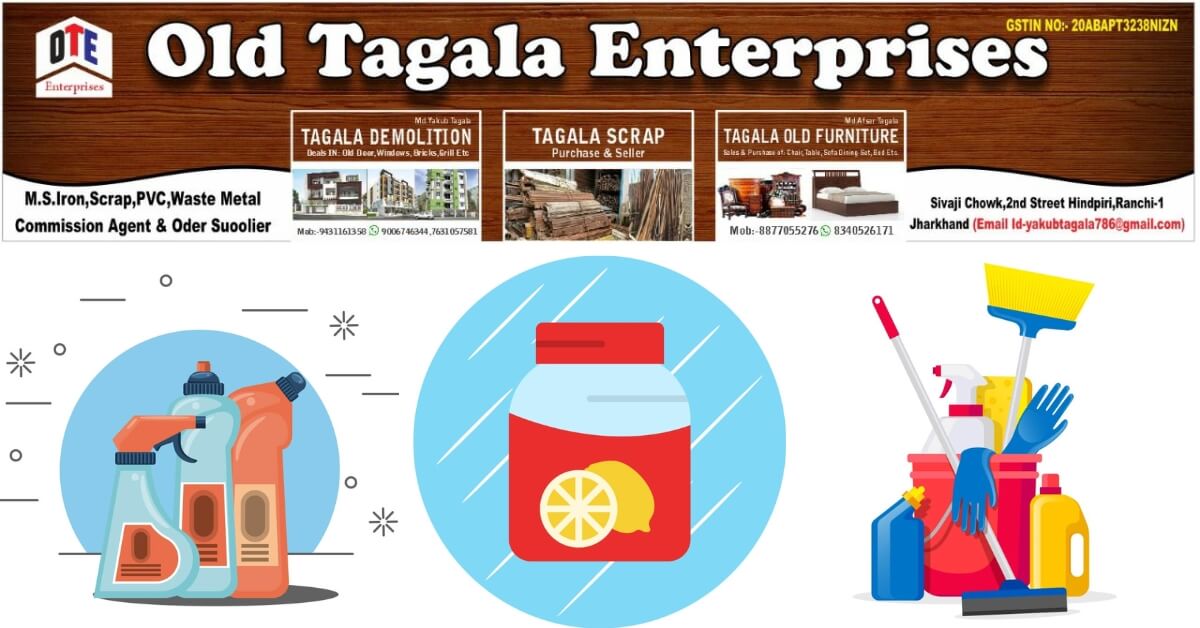Keeping your home clean and tidy is essential for maintaining a healthy living space, but using chemical-laden cleaning products can be harmful to both your health and the environment.
Luckily, it’s easy to make your own all-natural cleaning products with items you likely already have at home. Not only are these DIY cleaning solutions effective, but they are also eco-friendly and cost-effective.
How to Make Your Own All-Natural Cleaning Products
In this article, we’ll share some simple and effective recipes for all-natural cleaning products that you can make with items you already have in your kitchen.
1. All-Purpose Cleaner
An all-purpose cleaner is a must-have in any cleaning arsenal, and it’s easy to make your own using just three ingredients: water, vinegar, and essential oils. Vinegar is a natural disinfectant that can kill bacteria and viruses, while essential oils add a pleasant scent and boost the cleaning power of the solution.
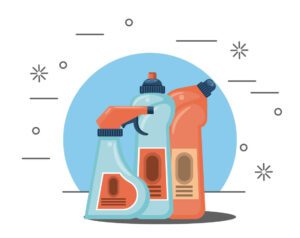
To make your own all-purpose cleaner, mix equal parts water and vinegar in a spray bottle and add a few drops of your favorite essential oil. Shake the bottle well before using, and spray on surfaces to clean and disinfect.
2. Glass Cleaner
Commercial glass cleaners often contain ammonia, which can be harmful if inhaled. Instead, you can make your own glass cleaner using just two ingredients: water and rubbing alcohol. Rubbing alcohol is a natural disinfectant that can also help to remove grease and grime.

To make your own glass cleaner, mix equal parts water and rubbing alcohol in a spray bottle. Shake well before using, and spray on glass surfaces such as windows and mirrors. Use a clean cloth to wipe the surface clean.
3. Lemon and Baking Soda Scrub
For tough stains and grime, a scrub can be a powerful cleaning tool. You can make your own all-natural scrub using just two ingredients: lemon and baking soda. Baking soda is a natural abrasive that can help to scrub away stains, while lemon juice is a natural bleach that can help to brighten surfaces.
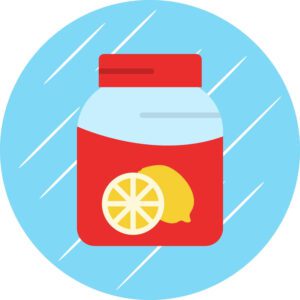
To make your own lemon and baking soda scrub, mix equal parts baking soda and lemon juice to form a paste. Apply the paste to the surface you want to clean and scrub with a sponge or brush. Rinse the surface clean with water.
4. Furniture Polish
Commercial furniture polish often contains chemicals that can be harmful to your health and the environment. Instead, you can make your own furniture polish using just two ingredients: olive oil and lemon juice. Olive oil can help to nourish and protect wood surfaces, while lemon juice can help to remove stains and brighten the surface.

To make your own furniture polish, mix equal parts olive oil and lemon juice in a spray bottle. Shake well before using, and spray on a soft cloth. Use the cloth to polish wood surfaces, being sure to buff away any excess.
5. Toilet Bowl Cleaner
To clean your toilet bowl naturally, you can make your own toilet bowl cleaner using baking soda and vinegar. Baking soda can help to scrub away stains and odors, while vinegar is a natural disinfectant.
To make your own toilet bowl cleaner, sprinkle baking soda into the toilet bowl, then add vinegar. Allow the mixture to fizz for a few minutes before scrubbing the inside of the bowl with a brush. Flush the toilet to rinse the bowl clean.
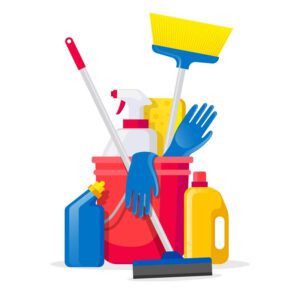
Certainly! Making your own all-natural cleaning products has many benefits beyond being safer for your health and the environment.
10 Creative DIY Projects to Upcycle Old Clothes
Here are a few more reasons why you might want to consider switching to natural cleaning solutions:
- Cost-effective: Buying commercial cleaning products can be expensive, especially if you need to buy different products for different cleaning tasks. Making your own cleaning products using items you already have at home is a cost-effective way to keep your home clean.
- Customizable: When you make your own cleaning products, you have control over the ingredients you use and can customize the recipe to suit your needs. For example, you can add more vinegar to your all-purpose cleaner if you need a stronger disinfectant solution.
- Eco-friendly: Commercial cleaning products often contain chemicals that can be harmful to the environment, especially when they are disposed of down the drain. Homemade cleaning products are typically made with natural and biodegradable ingredients that are safer for the environment.
- Safer for pets and children: Harsh chemicals in commercial cleaning products can be harmful to pets and children who may come into contact with them. Homemade cleaning products are typically made with natural ingredients that are safer for everyone in your home.
- Reduces plastic waste: Making your own cleaning products means you can reuse the same spray bottle or container instead of buying a new one each time you run out of a commercial product. This helps to reduce plastic waste and is better for the environment.
Overall, making your own all-natural cleaning products is a simple and effective way to keep your home clean and healthy without the use of harsh chemicals. Give it a try and see how easy it is to make the switch!
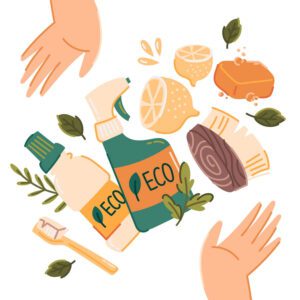
For more ideas you can Search 5 minutes craft website.
5minutecrafts.site
Conclusion:
In conclusion, making your own all-natural cleaning products is easy and cost-effective. With just a few simple ingredients, you can create effective cleaning solutions that are safe for your health and the environment.
Give these DIY cleaning recipes a try and see how easy it is to keep your home clean and healthy without the use of harsh chemicals.
Other Posts To Read:
How to Turn Scrap Metal into Art: Tips and Tricks
The value of second-hand furniture and how to find high-quality pieces
How to identify and avoid common scams when buying second-hand furniture online.
The benefits of donating unwanted items to charity or non-profit organizations
